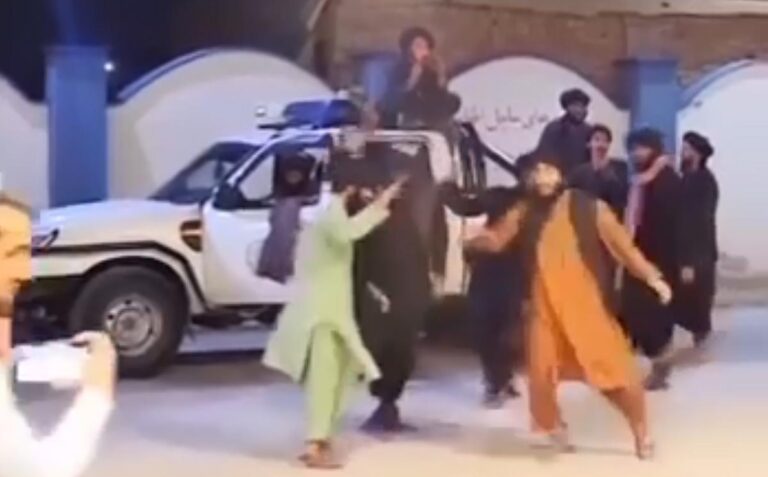Taliban officials in Afghanistan were filmed dancing to the music – two activities they immediately banned in a draconian crackdown upon their return to power.
The militant group, which bans music, dancing and any form of public celebration, was filmed swinging and spinning with weapons slung over their shoulders in a park in western Herat.
Shortly after taking power in Afghanistan, the talibans They not only banned music, but also publicly beat and humiliated musicians, the guardians of rapidly disappearing Afghan cultural traditions.
The Taliban’s morality police still patrol the streets day and night, looking for violators. Afghans caught breaking the ban can be beaten or imprisoned.
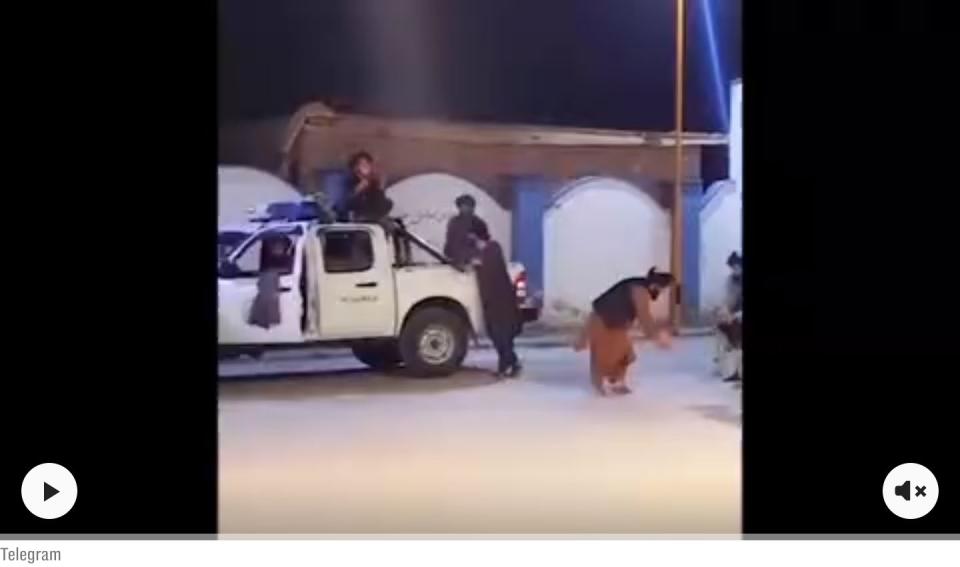

Morality police enforce strict Taliban laws, including a strict dress code and gender segregation in society.
However, many videos reviewed by The Telegraph show the Taliban contradicting their own rules.
In one video, a group of fighters are seen dancing while others watch from the roof of a SUV abandoned by the Americans. In another, ordinary people appear to watch them dance.
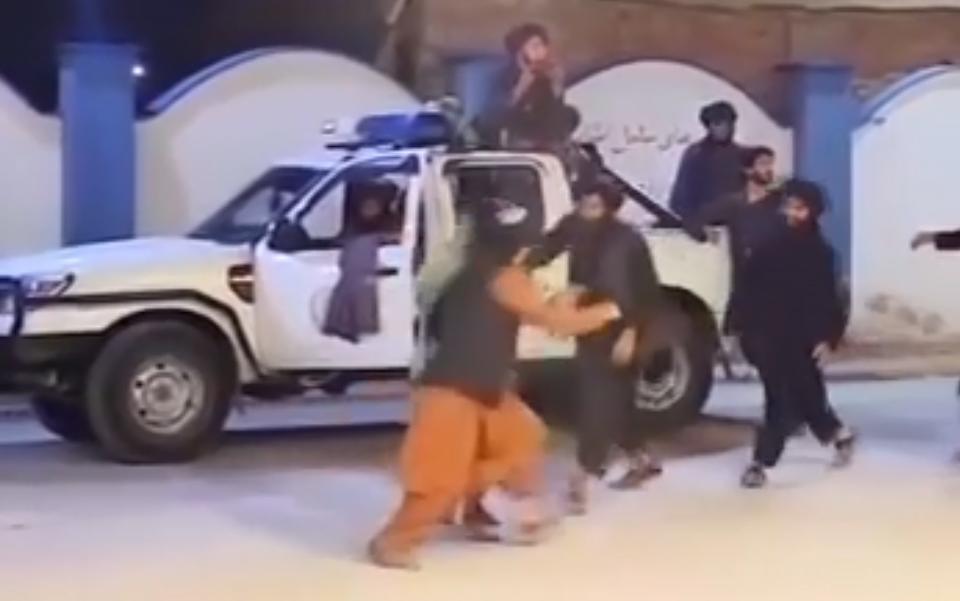

A break with Western culture
“When My commander’s son was born, we celebrated by dancing “In the courtyard of our police station,” a Taliban official in southern Helmand province admitted to the Telegraph.
He explained that many fighters do not believe that dancing is restricted by religion, but the ban is maintained by authorities who want to mark a break with Western culture.
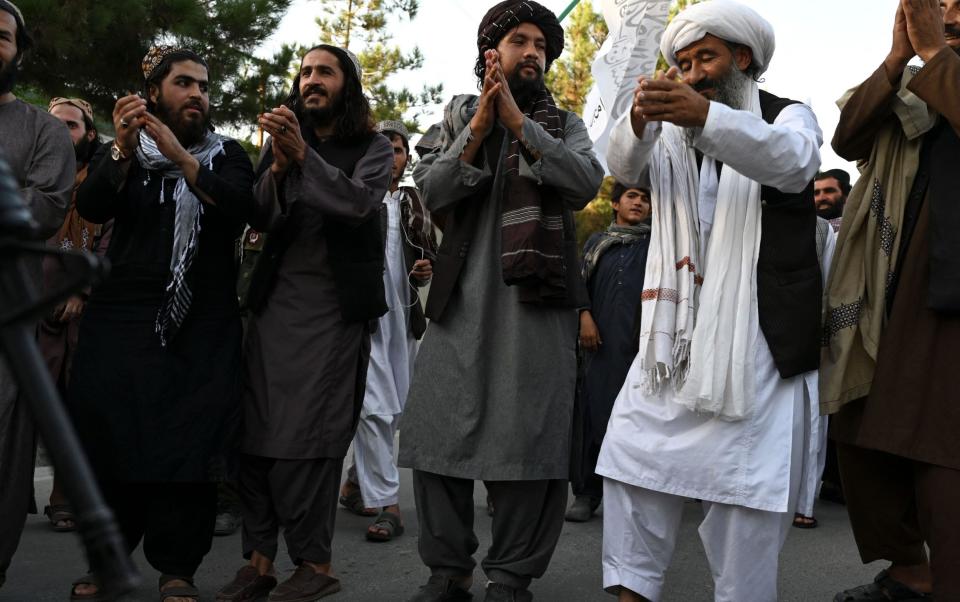

“They want to intimidate people and let them know that the Americans are gone and we are now in power,” he said.
An official of the The Taliban’s Ministry of Information and Culture declined to comment. on the apparent double standards.
The videos come as the government has tightened its grip on music and dance in recent weeks, declaring them a vehicle of “moral corruption” that must be purged from society.
These draconian measures even extend to personal vehicles, where it is forbidden to play music on the radio.
Checkpoints
Taliban checkpoints have sprung up in urban centers and on rural roads. Stern-faced fighters with rifles in hand force vehicles to stop if passengers listen to music.
“They stop me almost every day,” said Reshad, a resident of northern Maymana.
“They threaten me, telling me that I should not listen to music, but rather listen to the Quran. Last time, they took me to the police station because I was listening to an Iranian song in my car.
“They slapped me and told me they would keep my car for three weeks,” he said.
Afghan weddings, once punctuated by music and dancing, have now also become more discreet.
The traditional sounds of the dhol drum and harmonium, which for centuries have celebrated new unions, are now banned.
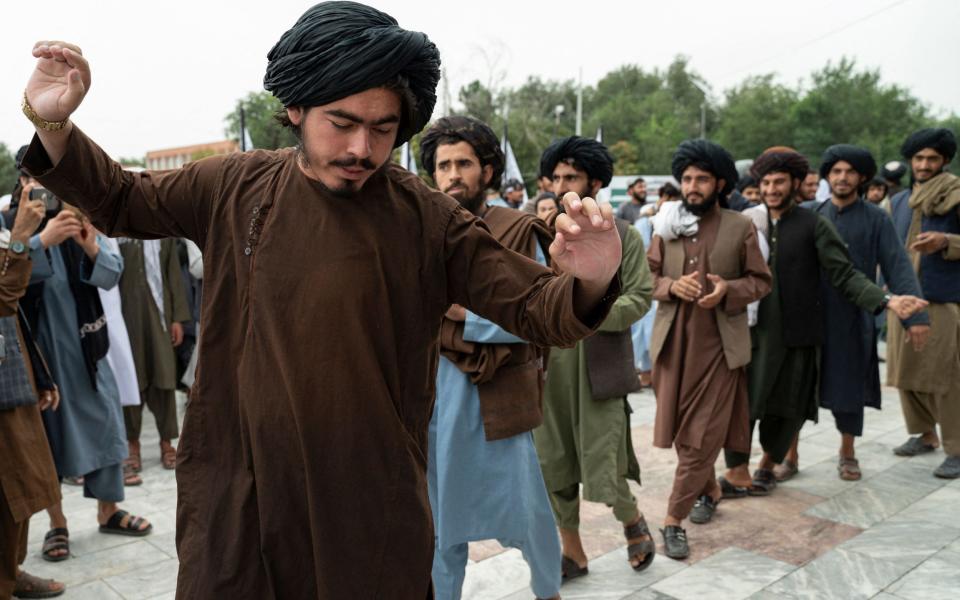

Silent Weddings
Families are required to celebrate the events in silence or with approved religious songs and speeches.
Once bustling wedding halls now lie silent and empty, with many having closed their doors because they cannot attract customers for ceremonies.
“About 20 of them burst into my wedding,” said Jalili Ahmad, 28, describing how her wedding in a private garden outside the city of Herat was attacked by the Taliban over music and dancing in May.
He and several of his guests were beaten, the women were dispersed and six people, including his father and father-in-law, were detained for 10 days.
“They humiliated us and destroyed the most beautiful day of my life,” he said. “They are at war with happiness.”


